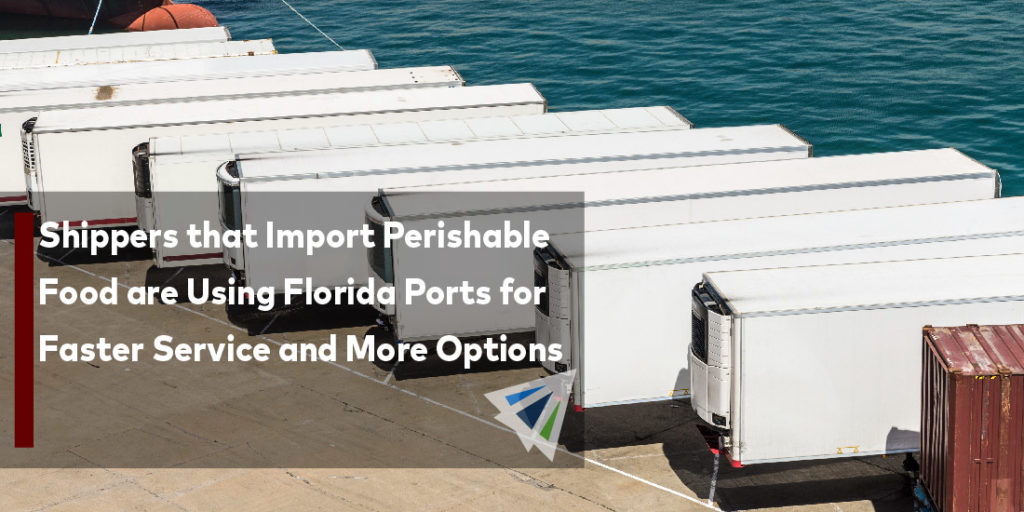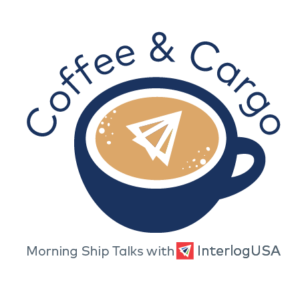Competitive Edge
March 2nd, 2022
Stay Current with Interlog’s Weekly Newsletter:
Sign up for our next Coffee & Cargo webinar –> CLICK HERE
To watch last month’s webinar –-> CLICK HERE
Ocean Freight Market Update
Headlines
- Reported by Freight Waves, Georgia Ports Authority has unveiled a plan to increase container capacity at the Port of Savannah by 60%, from the current 6 million twenty-foot equivalent units to 9.5 million TEUs by 2025
- Per Splash 24/7, the Port of Vancouver will limit the discharge of scrubber wash water starting March 1. Ships that are anchored in the port or moored at a berth will be banned from discharging scrubber wash water.
UPDATE: Notable U.S./Canada Port Congestion
- Houston: 46 Backlogged Vessels
- Charleston: 25 Backlogged Vessels
- Norfolk/Newport News: 42 Backlogged Vessels
- Los Angeles/Long Beach: 58 Backlogged Vessels
- Vancouver: 68 Backlogged Vessels
- New York/Newark: 24 Backlogged Vessels
- Note: This does not include port-bound vessels waiting at ports of origin
IMPORT: Asia to North America (TPEB)
Recent Developments:
- Projections for a return to pre-Covid normalcy scheduling could take up to a year for TPEB lanes, per industry experts
- Potential disruptions on TPEB may result from union (ILWU) contracts expiring this June
- Aging cargo, that arrived at origin ports just prior to or during Chinese New Year, is working on being moved out by carriers
Rates: Rate levels remain elevated. Premium market remains strong.
Space: Space remains critical.
Capacity/Equipment: Capacity remains severely under. Equipment deficits critical.
TIPS: Book at least 4 weeks prior to CRD. Strongly consider premium service and carrier IPIs through the PSW gateway. Be flexible as it comes to equipment and routing.
IMPORT: Europe to North America (TAWB)
Recent Developments:
- USEC port congestion swelled with all major ports seeing significant delays and wait times up to 6-8 days
- USWC ports, notably Long Beach/Los Angeles, remain heavily congested with wait times not improving
- Yard congestion at LB/LA has slightly improved
Rates: Rates levels to remain notably high. Further increases are expected into March.
Space: Space remains critical, especially for the USWC.
Capacity/Equipment: Capacity remains tight for both North Europe and Mediterranean services. Equipment availability at ports, however shortages remain at inland terminals.
TIPS: Book 6 or more weeks prior to CRD. Strongly consider premium service for higher reliability and no-roll guarantees.
EXPORT: North America to Asia
Recent Developments:
- Diminishing schedule integrity is contributing to void sailings, delays, vessel cut-offs at ports, and challenging post earliest return dates
- Vessel arrivals remain fluid for USWC POLs
- For the USEC, Savannah operations have seen improvements, but New York has seen increasing delays
- Rail availability for USWC has become limited with carriers firmly adhering to allocations
Rates: GRI activity (limited) anticipated for March.
Capacity: Available capacity remains fluid for USWC POLs. USEC capacity has become for readily available.
Equipment: IPI origins remain adversely affected by deficits on containers and chassis. Standard equipment availability has not been an issue, but special equipment is remains elusive.
TIPS: Book 4 to 6 weeks prior to CRD to secure equipment and vessel space.
AIR FRIEGHT: United States
- Demand to Asia, Europe, and Latin America generally remains stable
- Demand has risen for European hubs Frankfurt (FRA) and Amsterdam (AMS)
- Airlines are back on schedule along with manageable capacity
- Larger shipments from major outbound gateways can take 2 to 3 days from booking to uplift.
- Rates to Latin America, Europe, and Asia have not seen considerable changes, but fuel costs are slightly higher.
TIPS: Book early considering the current dwell time at airports.
Tip Of The Week: How to Deal with a Blank or Void Sailing:
Being hit by a blank or void sailing means you are now left to find another option in getting your cargo overboard, which can be quite stressful. Here are some tips:
Communicate with your freight forwarder about options – they constantly work with many carriers and steamship lines and will have clear ideas on the schedule for ocean vessels
Consider a different mode of shipping – what would the steps look like transferring your ocean cargo to an airline? It is important to note that this depends on several factors including the size/weight of your shipment, shipping deadlines, your budget, and more.
Feel free to reach out to us should you have any questions!
Freight News
The Suez Canal set to increase canal tolls effective March 1st, expansion set to finish July 2023
Effective March 1st, 2022 the Suez Canal will increase canal tolls between 5-10% (depending on the carrier type) on all vessels (full or empty) traveling both north and south, Freightwaves reported. This additional toll comes after the Suez Canal Authority (SCA) said in early November that it would increase transit tolls going through the canal by 6% beginning in February.
The Suez Canal waterway is a major transit center for goods and is a vital sea route connecting Southeast Asia to Europe – and according to I24News, the Suez Canal accounts for roughly 12 percent of global trade. In July 2023, the Suez Canal is expected to complete a project to expand parts of the canal. Within this project, the Suez Canal Authority (SCA) stated that a second channel of the canal would be extended, as well as plans to enlarge an existing channel – the channel that caused blockage of the waterway for six days last year, reported Reuters.
Global schedule reliability hits a new low, as Asia to U.S. West Coast vessel on-time performance sees improvement
Global schedule reliability has hit a new low, dropped to 35.8% – compared to 63.9% in 2020 and 78% in 2019, reported Seatrade Maritime. Schedule reliability, is the percentage of arrivals and departures that arrived or departed as scheduled without schedule interruptions. The vessel on-time performance on the Asia-North America West Coast lane has increased by 0.5% percentage point to 10.3% and in the East Coast fell 1.8 percentage points to 17.3%, the Journal of Commerce reported.
Alan Murphy, the CEO of Sea-Intel told Seatrade Maritime News, that all six major East/West trade lanes recorded double-digit year-on-year declines in schedule reliability, with the “Asia-Europe and Asia-North America West Coast trade lanes recording year-on-year declines of over 40 percentage points.”
Many experts are not expecting any huge improvements in 2022 regarding vessel schedule integrity this year, as congestion is still expecting for some months at several main load ports in Asia and receiving ports in North America.
Blog Of The Week

Shippers that Import Perishable Food are Using Florida Ports for Faster Service and More Options
Sign Up For This Month's Webinar Now:

We will be discussing a variety of hot topics with our industry experts! We will also touch on current events and will have a live Q&A session!
Sign up for our
industry answers
Our team works to provide valuable, unique, and relevant content to assist you in finding solutions. Sign up now.